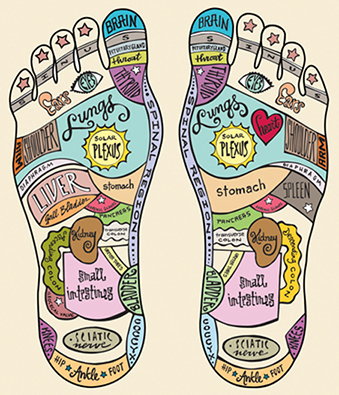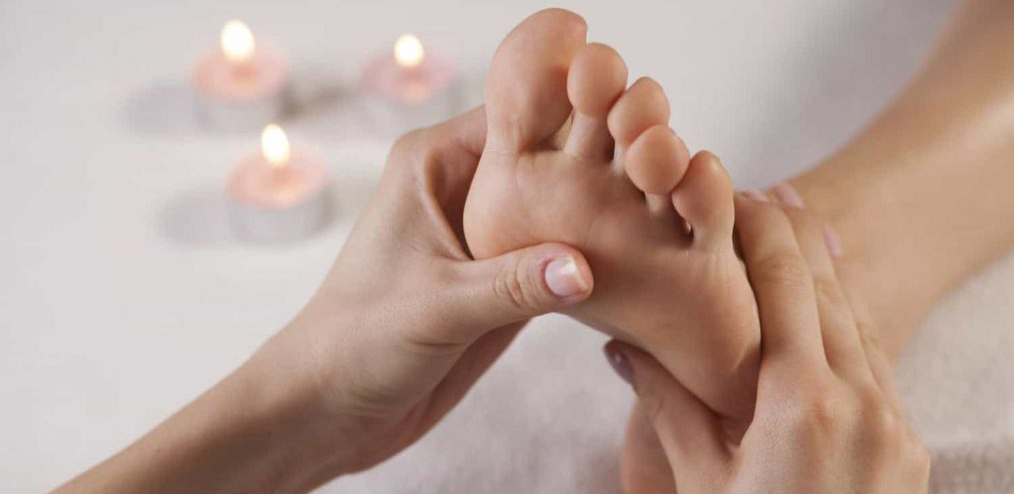What is Reflexology

Reflexology is a non-invasive complementary health therapy that can be effective in promoting deep relaxation and wellbeing. It works on the principle that reflex points on the feet represent every organ, gland and structure of the body. Stimulating these reflexes can reduce congestion and restore the free flow of energy to the whole body, interrupting the pattern of stress and help bring the body back into balance. It treats the mind and body as a whole thus achieving an increased state of wellbeing.
Modern reflexology is based on an ancient form of therapy which dates back to China around 3000 B.C., with evidence of the therapy also being used around the same time in Egypt with North American tribes of Indians also using the therapy for many hundreds of years.

Is Reflexology suitable for everyone?
Reflexology is a gentle therapy which can be received by anyone, babies, children and adults of any age may all benefit from the treatment. There may occasionally be times when it is not suitable to provide treatment which is why I take a full medical history including details about your lifestyle. If you are unsure whether it is right for you, the best thing is to give me a ring and we can discuss it. Please note: reflexology should not be used as an alternative to seeking medical advice.
Will reflexology help me?
Well trained reflexologists do not claim to cure, diagnose or prescribe. Reflexology is a very individual treatment, I will tailor treatments to your specific needs, taking into account both physical and non-physical factors that may be affecting your well- being.
How does reflexology work?
The theory is that reflexology helps the body to restore its balance naturally. After a treatment, you should feel less tension and more relaxed. The majority of my clients report back that they sleep much better and wake refreshed. Their sense of wellbeing is improved and mood is enhanced. With ever increasing levels of stress in everyday life, it is the perfect treatment to mitigate the stresses of modern life. There have been positive research projects carried out with reflexology; however, as yet, there is not a large enough body of evidence for us to make clinical claims of effectiveness.
What happens during the treatment?
A full medical history will be requested on your first treatment, and you will be asked to sign a consent form for treatment. This information is kept confidential. Reflexology is a very easy therapy to receive, I will ask you to remove your socks and shoes and make yourself comfortable on my therapy couch. I will begin by gently massaging your feet and then apply pressure to reflex points. It should be a deeply relaxing experience, if certain reflexes are congested then you may feel some slight tenderness, but this soon passes. I have some clients that immediately drop off to sleep, other clients who talk the whole way through the treatment, talking can also be part of the therapy. There is no right or wrong, it is your treatment, you do whatever feels comfortable. It is a compliment if my clients sleep; it is a reassuring sign that they feel comfortable and safe in my presence.
How will if feel after a reflexology treatment?
Most people note a sense of well-being and relaxation; however, sometimes people report feeling lethargic, nauseous or tearful, but this is usually transitory and reflexologists believe that any effects are positive and are signs of the healing process. I welcome and encourage feedback from all my clients, it shows a response of your body to the treatment. This in turn helps me to tailor a treatment plan specific to your needs.
